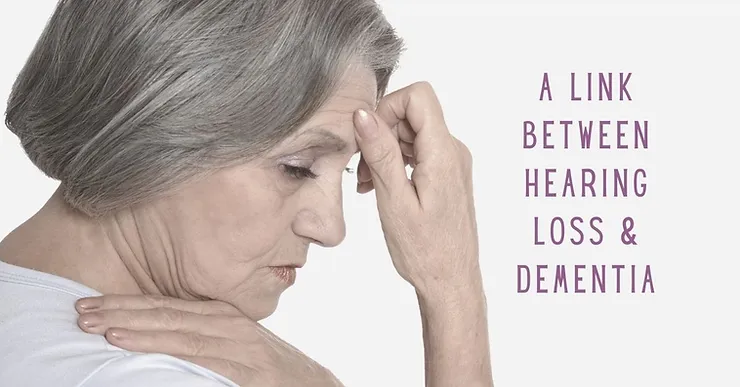
Once upon a time, hearing loss was thought to be an inevitable part of getting older, but that’s all. Fortunately for those growing older in today’s world, we now understand that hearing loss can function as a warning sign against dangerous underlying conditions like heart disease, and that hearing loss itself can lead to negative health outcomes that can be avoided with treatments such as hearing aids or cochlear implants.
One such outcome, and arguably the most significant, is dementia and cognitive decline. Studies are finding routinely now that untreated hearing loss leads to dementia, and that fitment with hearing aids or cochlear implants can actually reverse the progress of dementia.
Hearing Loss Increases the Risk of Dementia
A recent study at Johns Hopkins concluded that untreated hearing loss increases the risk for dementia by differing degrees depending on the severity of the hearing loss. Mild hearing loss doubles the risk. Moderate hearing loss triples it. And profound hearing loss multiplies the risk by five.
This does not mean that hearing loss is a guarantee of dementia, but it does increase the chances that a person will develop dementia significantly.
Treating Hearing Loss Can Reverse Cognitive Decline
Another study conducted at Assistance Publique-Hôpitaux de Paris in France found that cochlear implants significantly improved the cognitive scores for 80% of study participants, one year after implantation. The results showed that hearing loss treatments are actually more effective than the best drugs currently available for treating dementia.
Three Paths From Hearing Loss to Dementia
There are three ways that hearing loss can contribute to an increased risk of dementia. All three of them are significant and may work together.
Cognitive Load
The theory of cognitive load says that, as hearing ability decreases, more effort is expended by the frontal cortex in making sense of what is being said. A person is spending extra brain power on determining whether their conversational partner just said “meet” or “neat,” and less brain power on committing things to memory or synthesizing information. Most people who start to experience hearing loss will quickly realize how exhausting it is, and “cognitive load” is the longer-term problematic result of that daily fatigue. Over time, the brain’s resilience is diminished.
Brain Atrophy
As the brain starts receiving less information from the ears, the auditory cortex will start to diminish in response. Brain scans of older adults with hearing loss demonstrate less grey matter in the auditory cortex. This doesn’t indicate a loss of brain cells, just a minimization of the size of that section of the brain; the amount of space the cells take up. It may be that treating hearing loss allows this portion of the brain to “regrow,” and indeed those who have lost the ability to interpret speech due to a long period of untreated hearing loss can learn to hear again, once fitted with hearing aids.
Many audiologists will offer training sessions to those who have gone without treating their hearing loss for a long time and need assistance learning how to hear again, once fitted with hearing aids or cochlear implants.
Social Isolation
Social isolation is often an eventual consequence of hearing loss. We can draw a straight line through the progress hearing loss makes from fatigue to social isolation. As people experience the exhaustion from straining to hear and find their social time less enjoyable, they usually begin to withdraw from it. Social time is one of the most productive exercises for the brain, and reducing it accelerates the process of brain atrophy. With less social activity comes a significantly increased risk of dementia.
Prolonged loneliness, independently of any of its causes, has been shown to have about the same damaging physical effects as smoking 15 cigarettes a day. This applies to all of us, young or old.
Treating Hearing Loss Now Improves Health Outcomes
Whatever the current state of your hearing ability, if you haven’t had a hearing test in awhile, contact us to make an appointment now! The Better Hearing Institute, a non-profit organization, recommends getting a hearing test once every three years after the age of 50. The sooner you detect hearing loss and start treating it, the fewer negative effects of untreated hearing loss you’ll experience. The only thing better than reversing dementia is avoiding it altogether, so do what you can to treat your hearing loss as soon as possible.
We look forward to hearing from you!
